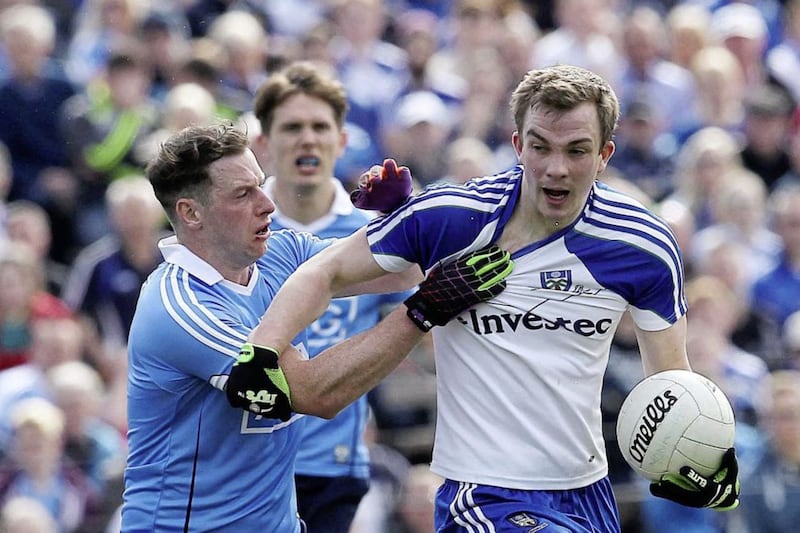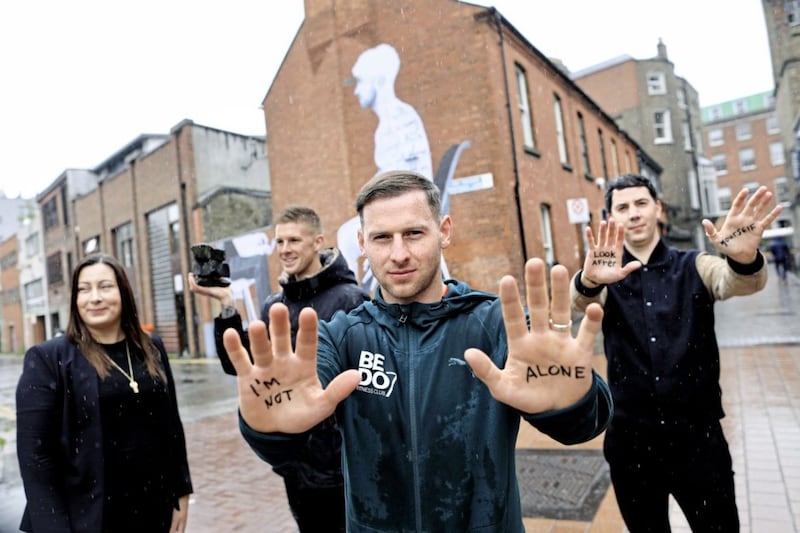IT wasn’t long after his Belfast-born father died that Philly McMahon knew he had to reach out. Dealing with the pressure and expectation of being part of a serial All-Ireland winning side is one thing, but when the dark clouds descended he was caught off guard.
Phil McMahon, who was born and raised in Lenadoon, passed away in August 2018 following a battle with stomach cancer - just a month before his son helped Dublin to a fourth All-Ireland title in-a-row.
As the weeks and months passed, McMahon struggled to shake the pain. After the experience of losing older brother John to a heroin overdose in 2012, the Ballymun ace learned what not to do if he found himself in that situation again.
“I was like a lot of young males in that, when John passed, I didn’t reach out,” said the 32-year-old, who a brand ambassador for the Irish Association of Counselling and Psychotherapy (IACP) and a long-term advocate of good mental health.
“My way to deal with that was to work silly hours and block out any psychological pain I had. I regret that but it was a learning for me because when my dad passed, I realised ‘don’t do that Philly’. Go and reach out, go and ask for help.
“It was so refreshing to go and speak to somebody. Now I didn’t have to do a huge amount of it, but the fact I went and reached out to somebody was a positive motivational step. Then when I spoke to the person, that was another step.
“I had to realise any pain and suffering I had was love for the person. It was a good thing. My experiences with mental health and post traumatic stress was based off bereavement. What we’re here on this planet to do is create memories, and my memories of my father are love and happiness. That’s why I suffered pain.
“So it was important for me to realise that, the days I get down or something reminds me of him, I can now reflect and say ‘they’re good things Philly’. Be happy and positive that he gave you those things in life.
“We’re always told ‘be healthy, be positive’ but sometimes it’s okay that, if there’s something negative there, we go through the emotions of something important to achieve a positive outcome.
“People can go and get help and understand why they get mental health issues, or they can go the route of a lot of people of drugs overcoming their pain psychologically. If IACP have 4,500 qualified psychotherapists – and I’m not saying the mental health structures we have in this country and perfect because they’re definitely not – ultimately we need to realise there is help out there.”
Since 2007 McMahon has been an integral part of the Sky Blue machine and, amid the ever-increasing demands of the inter-county scene, he admits the Covid-19 pandemic has provided time for pause and reflection.
A 2018 report from the Economic and Social Research Institute showed that GAA players can spend 31 hours on inter-county commitments – for McMahon, it has felt ever greater than that during the Dubs’ period of dominance.
“It’s been very interesting because when you have a career of 13 years, and you wake up in the morning and you’re thinking about training that evening, your whole day revolves around that.
“Whether that’s nutrition, your rest, your hydration, and when you think back on 13 years of that, it’s crazy, compared to waking up and going ‘I might do this at 1pm, I don’t care how tired I am’ because I don’t have training or a match tomorrow.
“Having the autonomy to do that, it’s incredible and it begs the question, if you were doing little bits every day, and having that little bit of time every day, how good would life be?
“Sport has given me a huge amount and I’m totally grateful for that, but it does make you wonder. Forty odd hours a week – it’s not actually 40 hours. I couldn’t think of a day where I didn’t think about football.
“It’s constantly there and I’m delighted I’ve done it, but if you could do that but also spend good quality time with your family members… that’s one of the things I would’ve liked to have been better at.
“But then you can’t get to the level you’re at without doing what you had to do. Whatever you put in you get out of it, and there has to be sacrifices for that.”
* The IACP represents over 4,500 accredited and CPD certified counsellors and psychotherapists in Ireland, with a nationwide directory of therapists at iacp.ie







